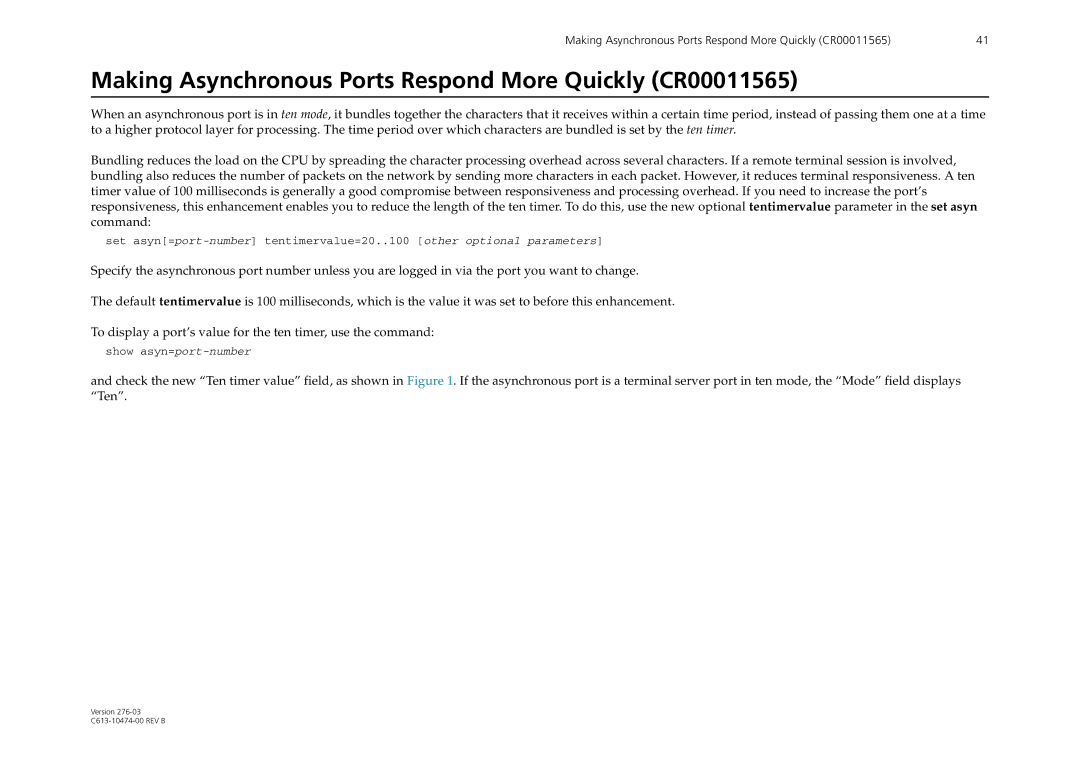Making Asynchronous Ports Respond More Quickly (CR00011565) | 41 |
Making Asynchronous Ports Respond More Quickly (CR00011565)
When an asynchronous port is in ten mode, it bundles together the characters that it receives within a certain time period, instead of passing them one at a time to a higher protocol layer for processing. The time period over which characters are bundled is set by the ten timer.
Bundling reduces the load on the CPU by spreading the character processing overhead across several characters. If a remote terminal session is involved, bundling also reduces the number of packets on the network by sending more characters in each packet. However, it reduces terminal responsiveness. A ten timer value of 100 milliseconds is generally a good compromise between responsiveness and processing overhead. If you need to increase the port’s responsiveness, this enhancement enables you to reduce the length of the ten timer. To do this, use the new optional tentimervalue parameter in the set asyn command:
set
Specify the asynchronous port number unless you are logged in via the port you want to change.
The default tentimervalue is 100 milliseconds, which is the value it was set to before this enhancement.
To display a port’s value for the ten timer, use the command:
show
and check the new “Ten timer value” field, as shown in Figure 1. If the asynchronous port is a terminal server port in ten mode, the “Mode” field displays “Ten”.
Version
